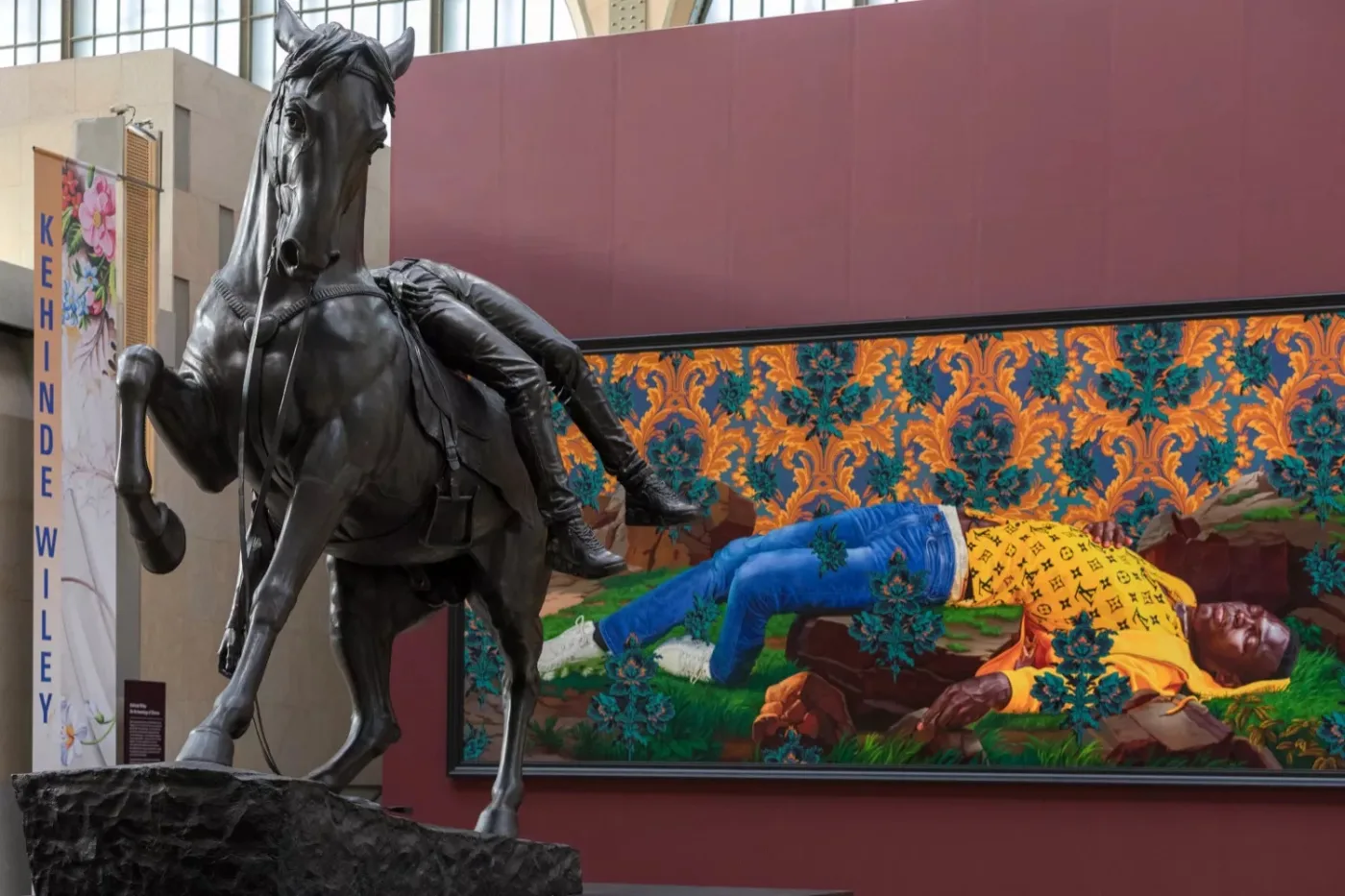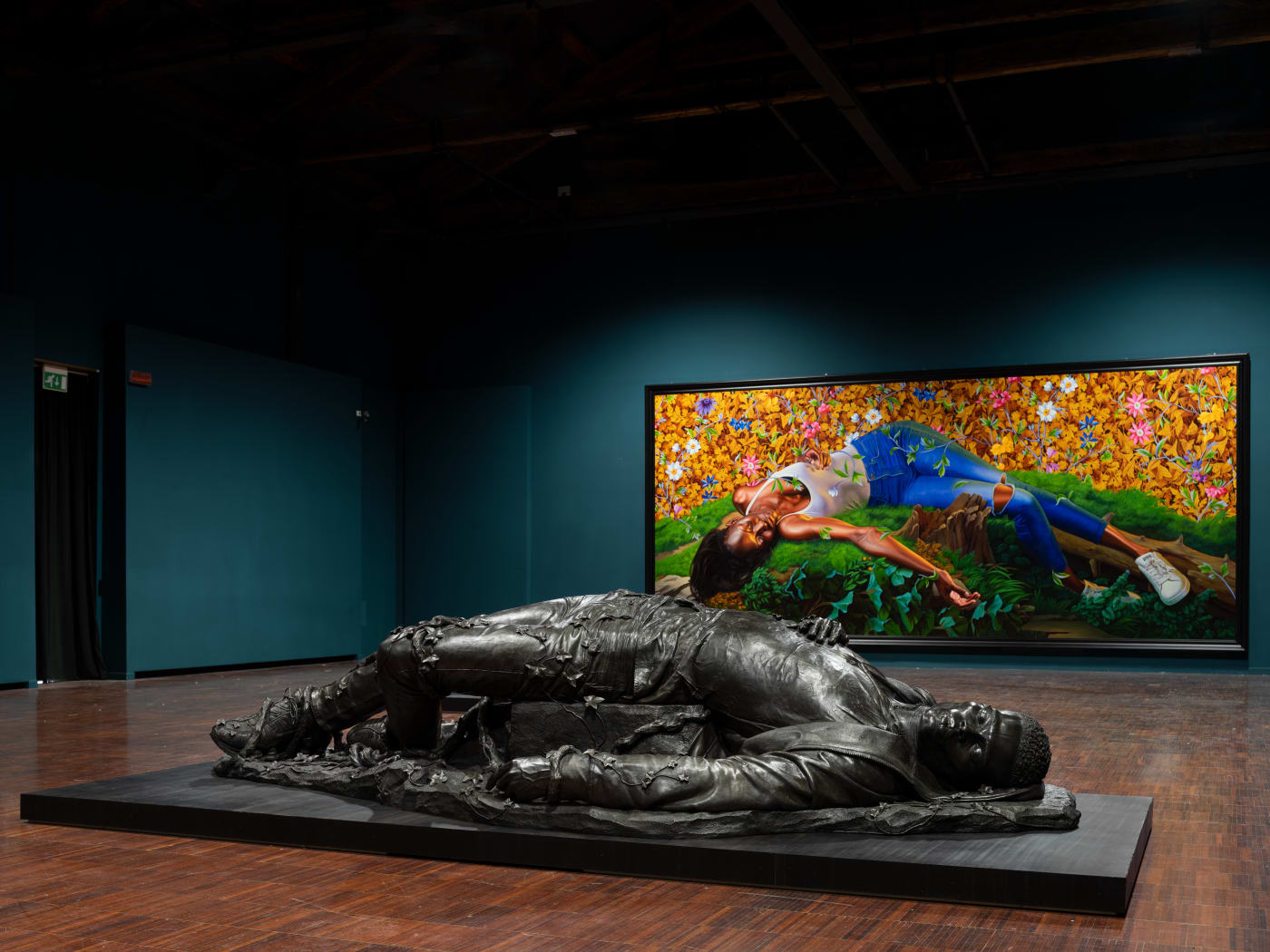
Kehinde Wiley: An Archaeology of Silence
Overview
For this new body of work, Kehinde Wiley sheds light on the brutalities of American and global colonial pasts using the language of the fallen hero.
The exhibition includes a collection of new monumental paintings and sculptures, expanding on his body of work DOWN from 2008. Initially inspired by Holbein’s painting The Dead Christ in the Tomb as well as historical paintings and sculptures of fallen warriors and figures in the state of repose, Wiley created an unsettling series of prone Black bodies, re-conceptualising classical pictorial forms to create a contemporary version of monumental portraiture, resounding with violence, pain, and death, as well as ecstasy.
For this new body of work, Wiley has expanded these core thematic elements to meditate on the deaths of young Black men killed all over the world. Technology allows viewers to witness these graphic depictions of violence against the Black body that were once silenced. Wiley states, “That is the archaeology I am unearthing: The spectre of police violence and state control over the bodies of young Black and Brown people all over the world.” In light of the current global conflicts, language concerning power struggles and inalienable human rights are more critical than ever.
The new portraits depict young Black men and women in positions of vulnerability that tell a story of survival and resilience, revealing the beauty that can emerge from the horrific. These poses, borrowed from Western European art historical sources, function as beautiful elegies echoing a central metaphor of youth and resilience and stand as monuments to endurance and perseverance in the face of savagery, incorporating a scale that pushes beyond the mere corporeal and into the realm of spiritual icons, of martyrs and saints.
'Archaeology of Silence' was previously exhibited at the 59th International Art Exhibition – La Biennale di Venezia and de Young, San Francisco.




